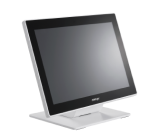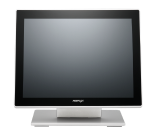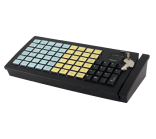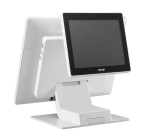If you step out of the house, you will encounter plenty of ticket counters in malls, theatres, parks, restaurants, expos literally everywhere. When these counters work at their best efficiency and accuracy, they can provide excellent customer service and manage high volumes of transactions. Barcode scanners have become essential tools in this setting, streamlining the ticketing process and enhancing operational efficiency. This blog explores the importance of barcode scanners in ticketing, highlights the benefits of using Posiflex barcode scanners, and demonstrates how they improve efficiency and customer service.
The Importance of Barcode Scanners in Ticketing
Barcode scanners play a pivotal role in ticketing operations, whether it’s for concerts, sports events, transportation, or amusement parks. These scanners automate the ticket validation process, ensuring quick and accurate entry for customers. Here’s why they are indispensable:
1. Speed and Efficiency:
Barcode scanners significantly speed up the ticketing process. Instead of manually checking tickets, which can be time-consuming and prone to errors, staff can quickly scan each ticket, reducing wait times and keeping lines moving smoothly.
2. Accuracy:
Manual ticket checking can lead to mistakes, such as accepting fake tickets or overlooking valid ones. Barcode scanners eliminate human error by accurately reading and verifying ticket information.
3. Data Management:
Scanning tickets allows for real-time data collection and analysis. This data can be used to monitor attendance, manage crowd control, and optimize staffing levels, enhancing overall event management.
Benefits of Using Posiflex Barcode Scanners at Ticket Counters
Posiflex barcode scanners are designed to meet the demanding needs of ticket counters, offering several advantages:
1. High-Speed Scanning:
Posiflex barcode scanners are equipped with advanced scan engines that provide rapid and precise scanning. This capability is essential for managing large crowds and ensuring a seamless entry process.
2. Durability:
Ticket counters often face high traffic and rough handling of equipment. Posiflex scanners are built to withstand these conditions, featuring rugged designs that ensure long-lasting performance even in challenging environments.
3. User-Friendly Design:
These scanners are designed for ease of use, with ergonomic grips and intuitive interfaces that make them accessible for staff to operate efficiently, even during peak hours.
4. Versatility:
Posiflex barcode scanners can handle various barcode formats, making them suitable for different types of tickets and passes. This versatility ensures compatibility with diverse ticketing systems.
Improving Efficiency and Customer Service
Implementing Posiflex barcode scanners at ticket counters brings notable improvements in both efficiency and customer service:
1. Reduced Wait Times:
Faster ticket scanning means shorter lines and quicker entry for customers. This reduction in wait times enhances the customer experience, making events more enjoyable and reducing frustration.
2. Enhanced Security:
Accurate ticket validation helps prevent fraud and ensures that only authorized attendees gain entry. This improves overall security and event management.
3. Streamlined Operations:
By automating the ticketing process, staff can focus on other important tasks, such as assisting customers and managing the event. This streamlining of operations leads to better resource allocation and a more organized ticket counter.
Conclusion
Advanced barcode scanners are essential tools for optimizing ticket counters, providing speed, accuracy, and efficiency. Posiflex barcode scanners stand out with their high-speed scanning, durability, user-friendly design, and versatility, making them ideal for any ticketing environment. By implementing Posiflex scanners, ticket counters can significantly enhance their operations, improving both efficiency and customer service. Visit our website to explore our range of barcode scanners and discover how Posiflex can transform your ticketing process.
Published on 26th July 2024












